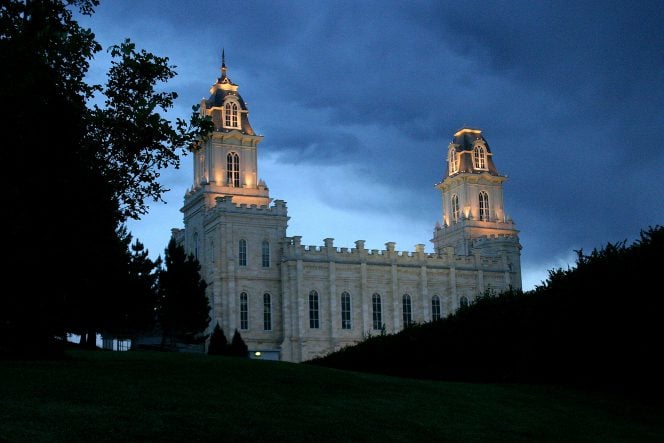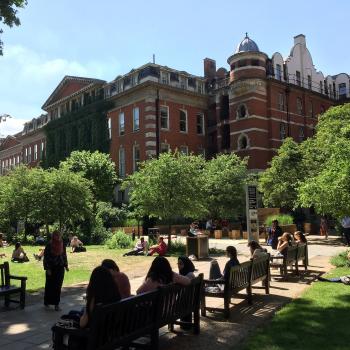
For quite a number of years, I wrote a regular weekly column for the Deseret News. (Every other week, I also co-wrote another, separate, column for the Deseret News with my late, lamented friend Bill Hamblin.)
I published this particular column in the News very nearly eleven years ago. Under the circumstances, it was all that I could do.
Our firstborn grandchild would have been eleven today. I can’t help but think of all of the experiences with her that we haven’t had. Here is the brief column that appeared back in 2014:
Some are displeased with the Church of Jesus Christ of Latter-day Saints over socio-political disputes, gender concerns, and other perceived grievances. While I seldom if ever share their specific issues, I don’t discount them. I know they can hurt.
However, compared with ultimate questions of life and death, they seem thin, even trivial. If the LDS Church’s claims are true — which I believe — everything else is at most secondary.
I echo the apostle Peter’s declaration, when some were offended by the Savior’s teaching:
“From that time many of his disciples went back, and walked no more with him. Then said Jesus unto the twelve, Will ye also go away? Then Simon Peter answered him, Lord, to whom shall we go? thou hast the words of eternal life. And we believe and are sure that thou art that Christ, the Son of the living God” (see John 6:66-69).
On a wintry Utah night decades ago, President Harold B. Lee and a local church leader paused, gazing through snow and darkness toward the Manti Utah Temple, high on the hill above them. “That temple,” the local man observed, “lighted as it is, is never more beautiful than in a storm or when there is a dense fog.” President Lee made the application: “Never is the gospel of Jesus Christ more important to you,” he said, “than in a storm or when you are having great difficulty” (see “Teachings of the Presidents of the Church: Harold B. Lee“).
Mortality offers happiness and sweet satisfactions, but also deep disappointments, intimidating obstacles and — sometimes — almost unbearable sorrows that pierce like a knife.
Among the sharpest such sorrows is the loss of a child. When excited thoughts of baby clothes, crib, stroller, anticipated first books, and a cheerfully waiting nursery are displaced by funeral preparations, those things remain — but, now, they mock and wound. The world is suddenly desolate. Joy turns to ashes.
A passage from T. S. Eliot’s “Journey of the Magi” comes to mind, however misapplied:
” . . . Were we led all that way for
birth or death? There was a birth, certainly
We had evidence and no doubt. I had seen birth and death,
But had thought they were different; this birth was
Hard and bitter agony for us, like death, our death.”
But God be praised: The birth that the Magi came to honor was the birth that would end death. “One short sleep past,” said John Donne, “we wake eternally, and death shall be no more; death, thou shalt die.”
Naturally, we grieve. Even knowing what he knew and what he would soon do, the Savior himself mourned the death of his friend Lazarus: “Jesus wept. Then said the Jews, Behold how he loved him!” (see John 11:35-36).
“But I would not have you to be ignorant, brethren,” wrote the apostle Paul, “concerning them which are asleep, that ye sorrow not, even as others which have no hope” (see 1 Thessalonians 4:13).
“Thou shalt live together in love, insomuch that thou shalt weep for the loss of them that die, and more especially for those that have not hope of a glorious resurrection. And it shall come to pass that those that die in me shall not taste of death, for it shall be sweet unto them” (Doctrine and Covenants 42:45-46).
Surely death is sweet for tiny infants who scarcely draw breath in mortality. Surely they will enjoy a glorious resurrection. “Little children are alive in Christ,” insisted the prophet Mormon, “even from the foundation of the world” (see Moroni 8:12).
Decades ago, a simple sentence in an LDS Church magazine article deeply impressed me. Sad at parting from co-workers after intense days together at the Hill Cumorah Pageant, a volunteer remarked that the pain was less acute because “friends in the gospel never meet for the last time.”
That comment has remained with me ever since. I believed it then; I believe it now. And yes, I desperately want it to be true.
“All your losses will be made up to you in the resurrection,” testified Joseph Smith in a passage that I’ve needed to cite too often in these columns, “provided you continue faithful. By the vision of the Almighty I have seen it.”
Lena Alaia, our long hoped-for first grandchild, was born on June 13 and died on June 16. “We said hello at the same time we said goodbye.” (From Craig Cardiff’s heartbreaking song “Smallest Wingless.”)
We’ve wrapped her in the blanket that we brought from Bethlehem for her crib, entrusting her to the Savior who was born there. He loved little children.
I still remember a trio of letters to the editor that were written in response to this particular column. I had a few atheists or, anyway, a few critics of the Church of the Church of Jesus Christ of Latter-day Saints who always liked to comment on what I wrote in my columns. Often (though not always), what I wrote had an apologetic flavor, and they felt an urgent need to do combat with me.
Almost as soon as this column appeared, one of them leapt into action. Belief in a life after death, he declared, was a pathetic psychological crutch for people with weak minds. It was irrational, there was no evidence for it, and we should face the cold facts of purposelessness and oblivion. Or, anyway, something along those lines.
Thereupon, another of the usual critics responded, suggesting that, since I had just lost a granddaughter, it would be appropriate and kind for the critics to hold off on such attacks, for at least a decent interval. The first commenter replied, saying that he was sorry, that he had not read to the conclusion of my column (where I explicitly mentioned our granddaughter’s death).
I appreciated the decency of the one letter-writer, and I appreciated the eventual decency of the other. But the exchange confirmed what I had long sensed, which was that the replies of at least some of these critics were likely just reflexive. Often, they didn’t really engage my arguments. They simply ignored them and asserted their unbelieving positions. I had suspected, but now I knew for a fact, that, in at least a few instances, they hadn’t even troubled to read what I had written.













